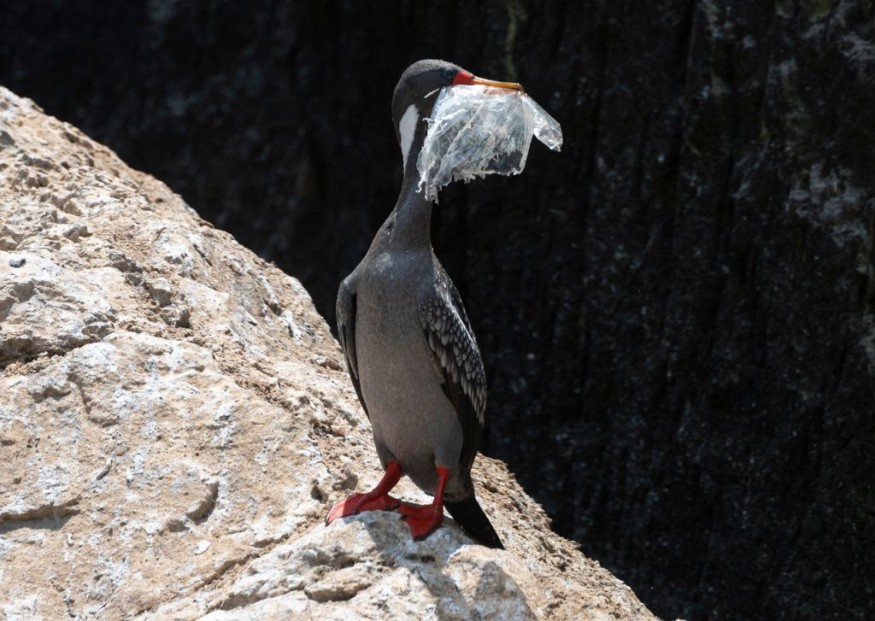Experts said that one of the world's most plastic-contaminated birds silently suffers from a rare, developing disease known as "plasticosis." Science Alert reported that this is the first time researchers recorded and measured the pathological effects of plastic ingestion in wildlife, and experts are concerned about the health of the animals.

Plasticosis Defined: How Plastic Waste Directly Affects Animal Health
Plasticosis is a new illness scientists describe as directly caused by plastic garbage in the environment. According to the latest research, "'Plasticosis': Characterising Macro- And Microplastic-associated Fibrosis in Seabird Tissues," published in the Journal of Hazardous Materials, sharp plastic particles can physically tear certain seabirds apart from the inside.
Researchers report that the study demonstrates the capacity of plastic waste to induce severe, organ-wide scar tissue known as plasticosis in wildlife, which is detrimental to their health and survival. As plastic pollution worsens, it becomes increasingly prevalent in all environments globally and plastic exposure to all organisms almost becomes inevitable.
A 2021 paper suggests that plastic pollution affects over 1,200 marine species of Beverly level of the food web, yet scientists still do not know the impact of plastic ingestion or inhalation on animal health.
According to New Scientist's report, the term "plasticosis" was given to the disease caused by plastic ingestion, likely due to its similarity to other fibrotic diseases, like silicosis and asbestosis. Plasticosis happens when tiny pieces of plastic are stuck in the digestive tracks of animals, causing chronic inflammation and scarring that may lead to other problems.
Researchers discovered that microplastics inflame and damage the first chamber of their stomach, called the proventriculus, until it finally begins to degrade. This can impair the glands that release digestive chemicals, affecting vitamin absorption and making them more susceptible to infection and parasites.
Chicks can starve to death in severe circumstances because their intestines get clogged with indigestible plastic. More so, plasticosis appears to impede the growth of those who survive. More plastic was related to a lower overall weight and shorter wings.
Most Affected Wildlife on Plasticosis
Plasticosis has only been observed in the digestive tracts of these flesh-footed shearwaters so far. Still, considering how ubiquitous the pollutant is, the research believes the illness will certainly impact other species, causing comparable scarring in other body regions. Studying this might be a critical step toward future work.
As per Science Alert, these dark brown birds with pink feet nest on Lord Howe Island, a tiny and lonely spit of land 600 kilometers east of Australia's coast.
Despite being far from human civilization, many chicks born on Lord Howe die slowly and ill, which appears to be entirely due to human activities. Scientists have been trying to figure out why so many of these seabirds are getting sick and dying.
Australian researchers and a team from London's Natural History Museum (NHM) found that excessive and irreversible signs of scar tissue on the birds' stomachs are caused by tiny bits of sharp plastic digging into the bird's internal lining. Without the chance of being healed, their stomachs grow distorted with damage.
Experts warn that plasticosis might be the first wildlife disease linked to plastic pollution and not the last.
RELATED ARTICLE : Online Project Birds and Debris Reveals that Plastic Waste Harms the Avian Species Globally
Check out more news and information on Plastic Pollution in Science Times.
© 2026 ScienceTimes.com All rights reserved. Do not reproduce without permission. The window to the world of Science Times.










